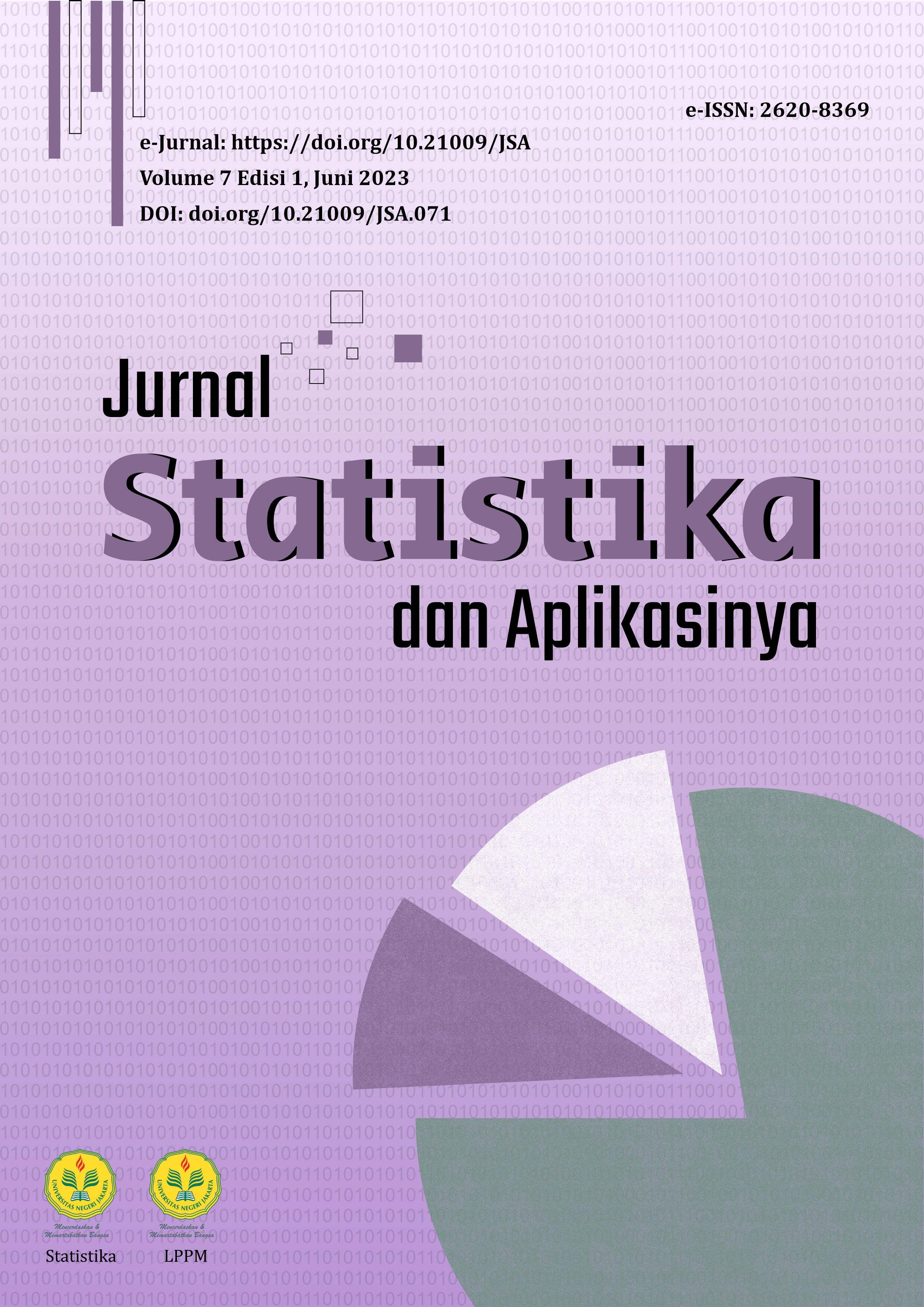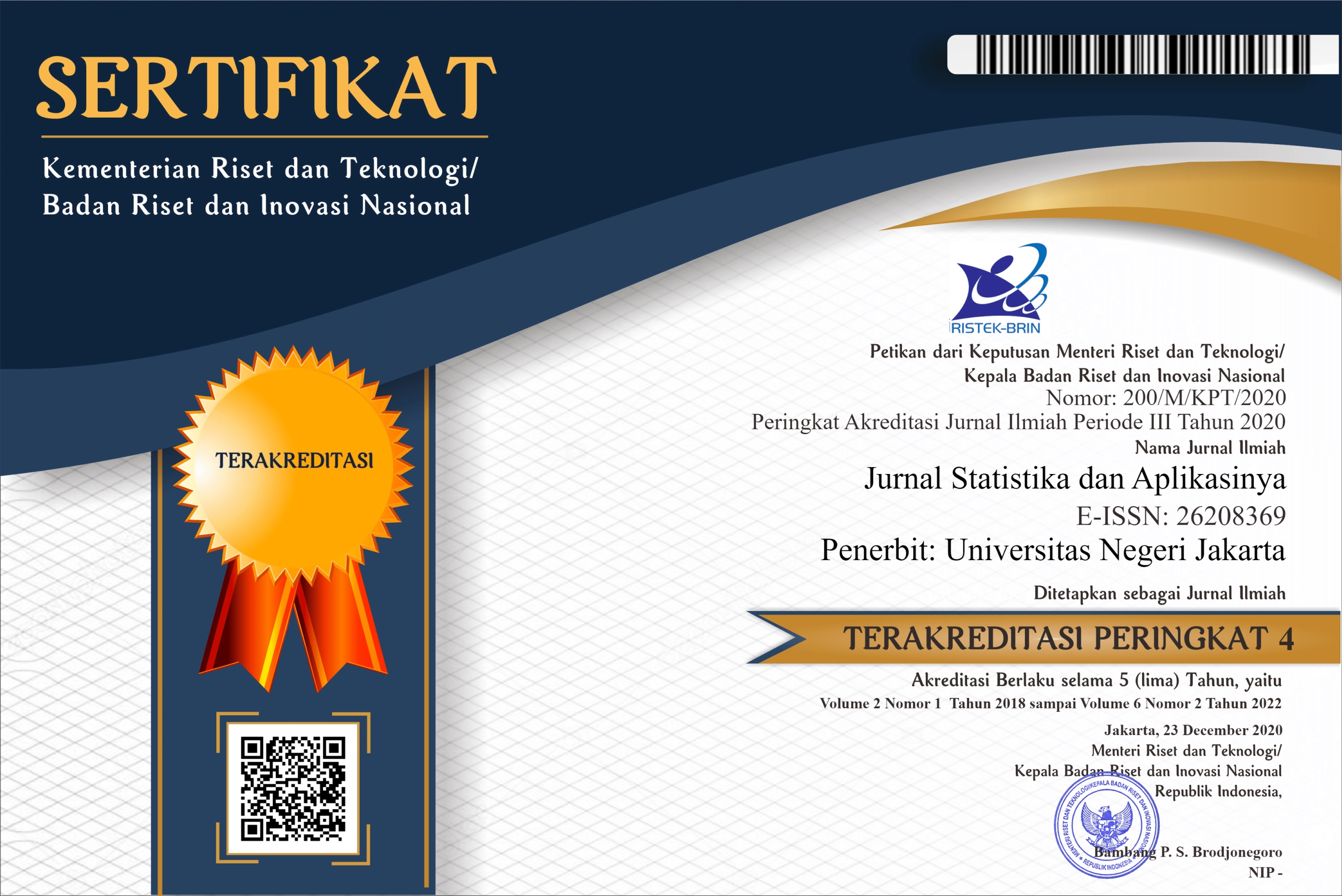Penerapan Metode Support Vector Machines (SVM) dan Metode Naïve Bayes Classifier (NBC) dalam Analisis Sentimen Publik terhadap Konsep Child-free di Media Sosial Twitter
DOI:
https://doi.org/10.21009/JSA.07109Keywords:
child-free, Naive Bayes Classifier, sentiment analysis, SMOTE, Support Vector MachinesAbstract
Child-free is a concept in which a person chooses not to have children or places and situations that are without the presence of a child. Along with the rapid flow of information, this child-free concept began to be discussed virally, especially on Indonesian social media, such as Twitter. Sentiment analysis is the mining of all people’s expressions and views on a phenomenon or product online in the form of text. Through a large sample collection of opinions and expressions, we can capture the voices or views of society, understand the dynamics that are taking place, and even know the extent to which the issue begins to touch aspects of people’s social life. This study aims to conduct sentiment analysis by comparing the performance of two different methods used to classify people’s views in the form of text data crawled tweets from Twitter. The two methods compared are Support Vector Machines (SVM) and Naive Bayes Classifier (NBC). Another purpose of this study is to provide an overview of public sentiment on social media Twitter about the concept of child-free. The results of this study showed that the data experienced an imbalance so to overcome this problem, SMOTE is used, SMOTE managed to increase the sensitivity of the prediction of minor data. The classification method that produces the best prediction on test data using the F1-weighted average criterion is SMOTE-SVM with a value of 60.45%. The opinions that support child-free mostly have to do with parents' unpreparedness to take care of children, while opinions that reject child-free think that it is contrary to religious advice and child-free decisions will make it difficult for old age because no one takes care of them.






